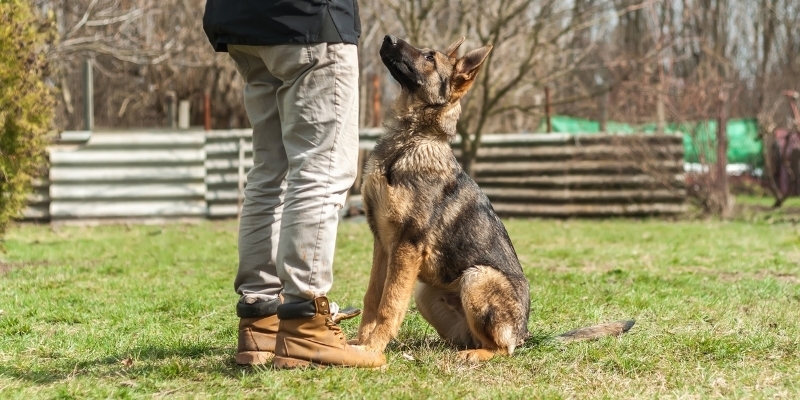If we say “german shepherd”, do you picture a focused and courageous working dog? Or a loyal and calm family companion? Unfortunately, without the proper socialisation, training and healthcare, this special breed can actually be prone to significant health and behavioural problems. Here are four ways to help get the best from a german shepherd.
1. Good socialisation, early!
Given their strong natural instinct for guarding, and their potential for developing a highly-strung personality, it’s important that you make sure your german shepherd receives positive socialisation during his or her critical socialisation period (from 3-16 weeks old) and thereafter. This can be achieved with the guidance of a well-run puppy school, during low infection-risk outings prior to full vaccination protection (ask our vets for more information on this), and by utilising positive-method training.
2. Mental and physical stimulation
German shepherds are active and intelligent, and require daily exercise and regular mental stimulation. If they aren’t given an outlet for their energy, they are more likely to develop behavioural issues like problem barking. As well as energetic daily walks and ball games, consider ongoing obedience training, agility runs or doggy daycare, plus long-lasting dental chews and puzzle toys.
3. Joint support
German shepherds have a predisposition to certain joint conditions, particularly hip dysplasia. It’s best to purchase a pup from parents with good (low) hip scores on hip health testing. You may also consider booking in for hip x-rays at around 14-16 weeks old to assess your pup’s hips.
German shepherds of all ages should be kept in a slim, healthy body condition to reduce excessive strain on joints. In addition to this, middle-aged to older dogs often benefit from joint health supplements.
German shepherds of all ages should be kept in a slim, healthy body condition to reduce excessive strain on joints. In addition to this, middle-aged to older dogs often benefit from joint health supplements.
4. Regular veterinary checks and monitoring
As well as degenerative joint issues, german shepherds are also more likely to suffer from gastrointestinal issues, autoimmune conditions, and certain cancers.
Our veterinary team recommends annual health checks for shepherds up to seven years old, and twice-yearly checks thereafter, so any health issues can be detected and treated as early as possible.
If you have any further questions about keeping your loyal canine companion in peak health, ask our helpful team!

